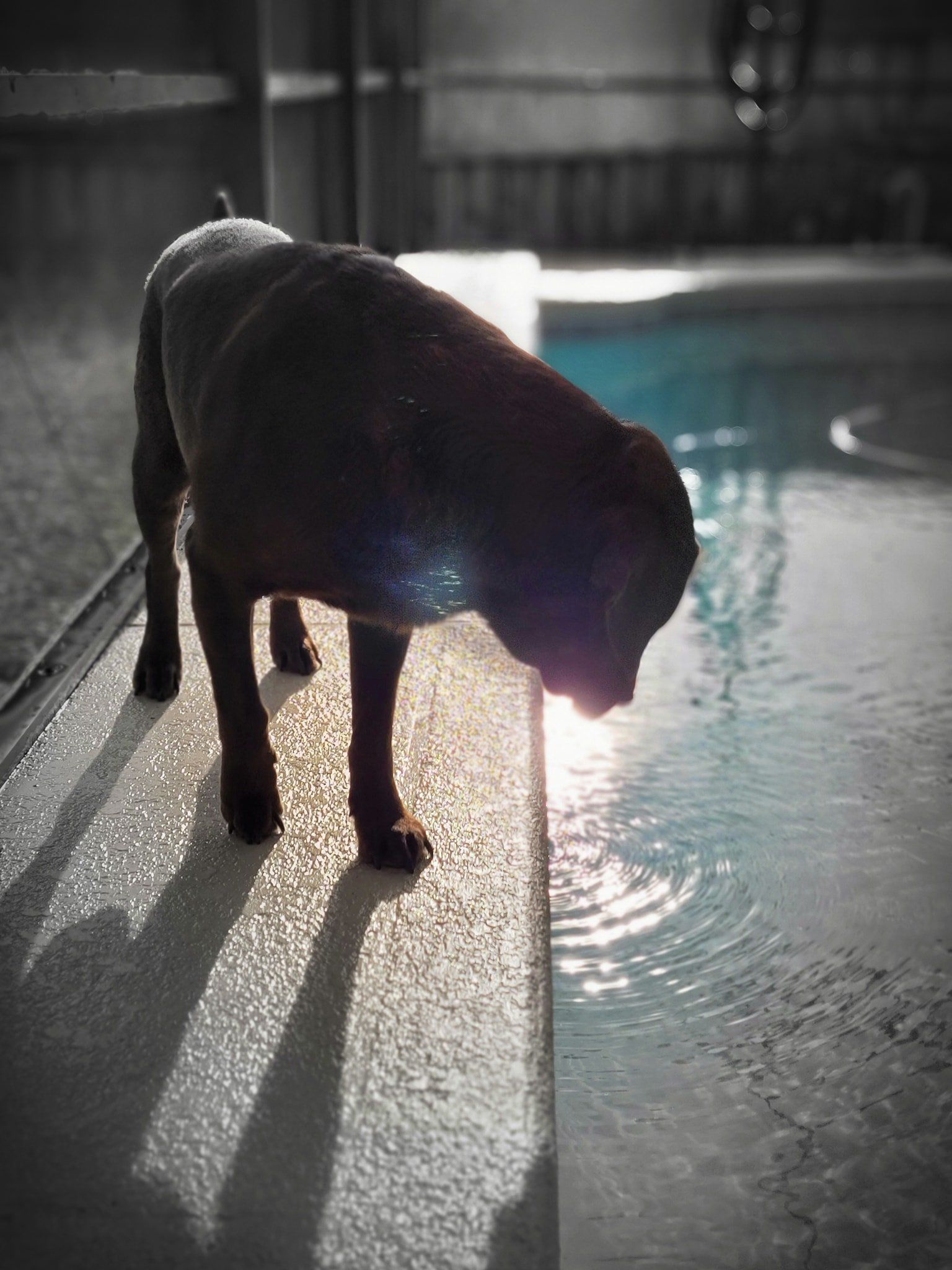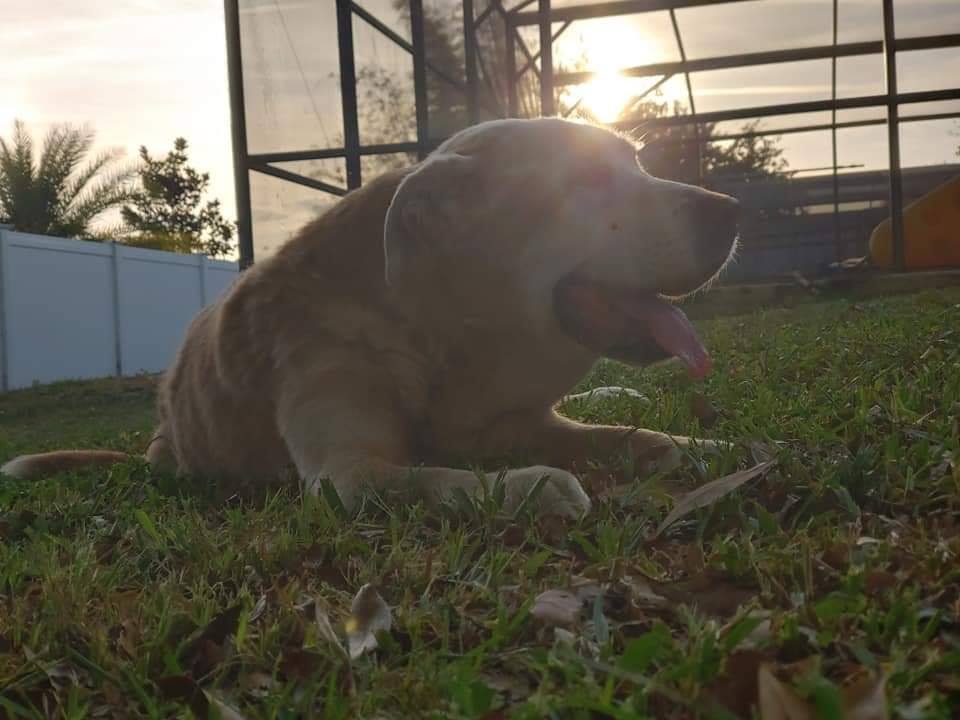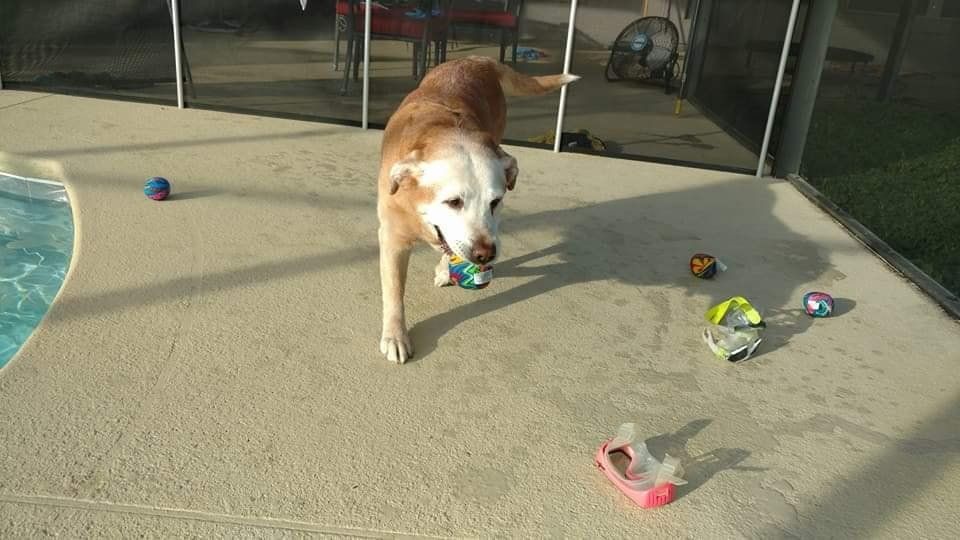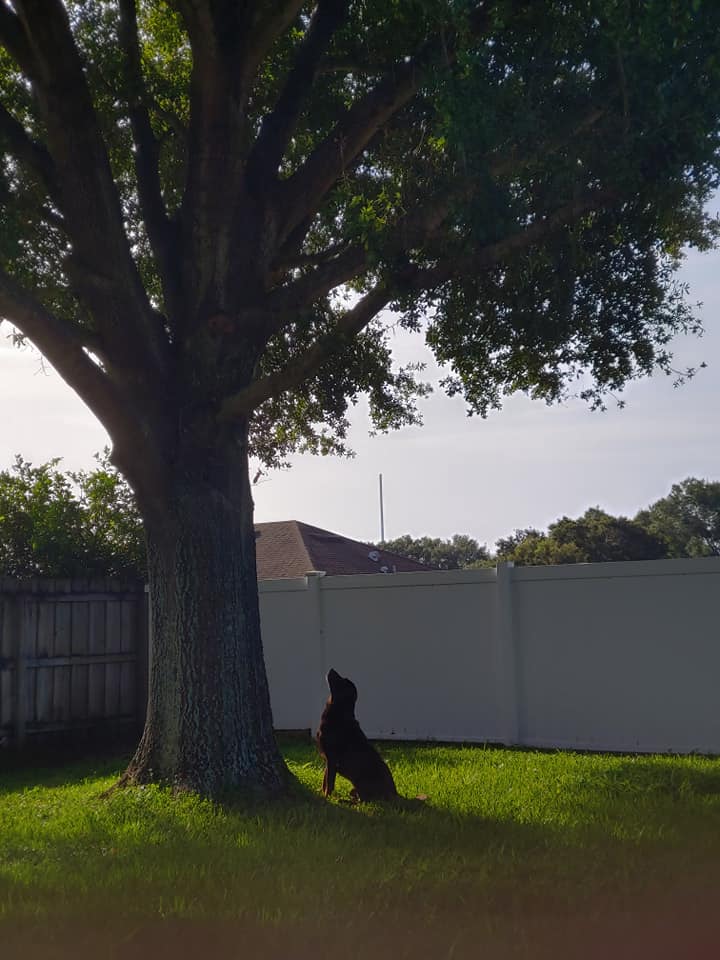Moving To Florida With Animals: Pets, Horses and Livestock
Wondering what it's like to live in Florida with animals? Find helpful resources below.
Equestrian Properties
Are Unique!
We LOVE horses and farm animals! Let us help you find the perfect farm with the right features that will meet your (and your animals) needs!
Send us a message; we will reach out to learn more about what you're looking for and we will send you the best listings currently available that match your needs!
What Do I Need To Know Before
Moving To Florida With Dogs and Other Pets, Horses and Livestock
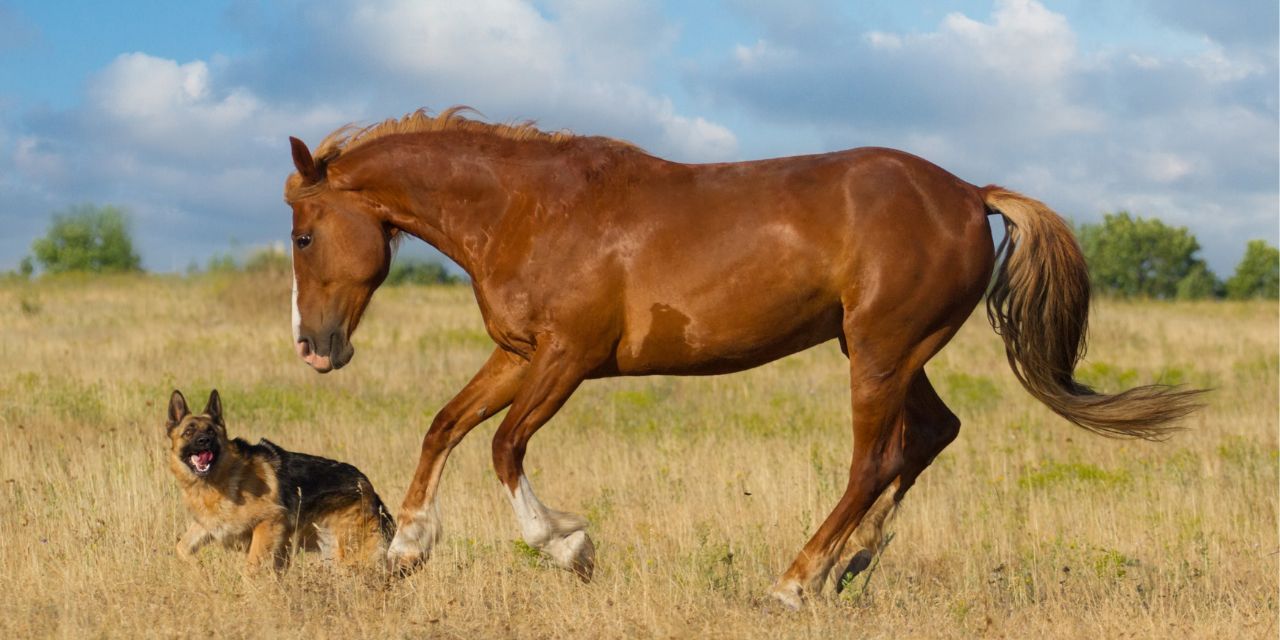
An interesting thought- What would our animals opinion be of moving to Florida? Although we cannot expect an answer from our beloved friends, we have experienced the joy of lounging in the sunshine with our beloved Labrador Retrievers and it's safe to say they're living their best life!
But what about animal safety? There are a few things you should know before relocating to Florida with animals of any kind. As with anywhere you live, there are natural and manmade threats to our pets and animals that can take many forms that you should be aware of. Here are a few of them with quick links to more great resources!
#1 The Heat - Florida is the Sunshine State averaging more than 237 days per year of sunshine! With all that sunshine can also come some raging heat and serious risk of heatstroke for both you and your animals. Never leave your pet in the car alone. Even when it feels cool outside, temps can rise to dangerous levels in just minutes. Cars can stall, pets may step on buttons and turn off the A/C, so don't risk leaving your pet unattended in a vehicle. Making sure fresh water is available at all times is essential- as is a shaded area to escape the sun's intense rays when needed. Pavement gets hot quickly, so just as you can burn your feet, don't neglect your dog's delicate paw pads either. Some dogs may tolerate protective boots.
Applying sunscreen to your animals with a pink or white muzzle and white markings is important to avoid burns and skin damage if they are in direct sun for an extended period of time. Keeping household pets indoors in an air-conditioned space during the hottest part of the day and keeping walks/ visits to the dog park to early mornings and evenings when temperatures are more comfortable can help keep everyone happy. UV fly sheets and masks for horses can help block UV rays while helping with flies. Fans and water misters/ mister fan combo units can go a long way to keeping animals cool and comfortable in the heat. Covered riding arenas make mid-day riding more comfortable.
HGTV- 10 Patio Misters That Will Keep You Cool This Summer
Protect Your Horse From Heat Stress- EQUUS Magazine
Dr. David Marlin: Horses, Heat, Sweating, Cold Water Cooling, Scraping
Heat Exhaustion vs. Heat Stroke- Fox35 Orlando
#2 Wild Weather- There's sunshine and then there's rain! And in Florida, when it rains it pours! Rain comes down in buckets, sheets, or as some say cats and dogs! Power can be expected go out at times, generators are a great feature to have when power is out for any length of time; whether it's a portable or whole house generator. Thunderstorms can give some of the calmest pets major anxiety. Many options are available to help your pets, including compression or supplements that can help your pet feel more relaxed and comfortable. Using a radio or TV to mask the noise can also help for some pets.(This also may work well for fireworks) Talk to you veterinarian before giving your pet any new supplements as they could interact with medicines.
Forecasts, Storm Alerts and Interactive Radar Maps, Traffic and More with the Fox35 Weather App: Download Fox35 Weather App
Many horses enjoy a little rain, but caring for horses and livestock during thunderstorms and severely inclement hurricane weather is a little different than with household pets. For dogs, you can set up a patch of sod in a kids plastic pool in your garage for them to use as a bathroom when it's too windy or rainy for longer periods of time. For horses, having shelter available to your horse during lighting either by bringing them into the barn or with run-in sheds or large trees can help decrease risk for lighting strike as your horse will not be the tallest point out in the open pasture. Barns can be constructed of solid concrete with hurricane resistant features which can keep horses safe from flying debris. However, sometimes turning horses out to pasture during extremely bad weather or when tornados are a possibility may seem like the opposite of what you should do, but during extreme high winds there is a possibility of horses becoming trapped if the barn collapses, which can be more dangerous than a pasture free from most debris. Horses have a natural instinct to protect themselves and having the ability to move around freely during inclement weather, rather than be trapped in a stall, is typically the recommended action. When it comes to the worst weather like hurricanes, when storms can often be predicted days in advance evacuation may be an option that you consider if the threat is great enough. Limited hurricane shelter options for your horses may be available as many hurricane rated barns offer up open stalls as shelters to owners without suitable barns. It's best to prepare ahead and have an emergency plan in place with all vaccination records ready for these instances.
Hurricane Planning For Horses University of Florida IFAS Extension
Horses vs. Rain- Central Florida AG News
#3 Pests, Insects, Reptiles, Amphibians & Snakes - Being a subtropical/ tropical climate, Florida is home to an abundance of wildlife, some more bothersome than others. Screened lanais are a common home feature in Florida for this reason. Controlling pests such as flies and fire ants using pet safe treatments and remedies should be used. Check out the links below to learn more about Florida wildlife and the
great resource for pest management , the University of Florida, Institute of Food and Agricultural Sciences Extension website:
Florida Wildlife That's Dangerous To Pets- Forever Vets
Pesticide Safety Around Animals
Protecting Florida Horses From Mosquitoes
Although snakes may not be your favorite reptile, only six of Florida's 44 snake species are venomous: the eastern coral snake, the southern copperhead, the cottonmouth, the eastern diamondback rattlesnake, the timber rattlesnake, and the dusky pygmy rattlesnake. Most Florida snakes are harmless and beneficial (especially around the farm) and remove extra rodent populations.
Living With Snakes- Florida Fish and Wildlife Conservation Commission
Join the What kind of snake is this? Florida. Snake ID Facebook Help Group
Atlas of Amphibians and Reptiles in Florida- Florida Fish & Wildlife Conservation Commission
#4 Alligators and the Less Often Mentioned Crocodiles were a concern when relocating to Florida with our Labradors. Alligators can potentially be in any body of water in Florida. Some farms have double fencing which mostly prevents them from coming onto properties, but obviously the potential is always there. Being cautious walking your dogs near the water's edge is always recommended, if not avoided altogether. We don't allow our dogs to swim in the lakes, but some people, their dogs and horses do. Swim at your own risk. American Crocodiles primarily are found in south Florida living in brackish and saltwater habitats such as ponds, coves and creeks of mangrove swamps. Recently crocodiles have moved northward within their range and even inland into freshwater areas of southeast Florida.
Depending on where you decide to live, more rural properties would see more alligator sightings typically than the more heavily settled areas. Personally, we have not seen any alligators yet in our neighborhood in the last 4+ years we have been here. We have a lake at the bottom of our street; we are sure that there are alligators living in there, yet still, people kayak, swim and water ski in the lake everyday. Rarely do we actually hear news stories about them attacking humans or pets, considering there are over 1.3 million alligators in Florida. To compare, there are more than 22 million people currently living in Florida- and the "Florida Man/Woman" endangers fellow "Florida Man/Woman" stories top new headlines far more often than gators attacking humans or pets!
Living With Alligators and Crocodiles Florida Fish and Wildlife Conservation Commission
Don't let any of the above scare you though, with a little education and appreciation for nature and the Florida lifestyle, you and your animals can overcome your fears and learn to live safely among the alligators, pests, insects, snakes, and weather that may not be as bad as you once thought. Don't forget! Any place you live has its dangers, positive qualities and potential downsides. Over 56% of households in Florida own a pet (nearly 40% include at least one dog) and with Florida ranking 3rd for number of horses; overall, you can feel assured that Florida is a pet and equine friendly state!
Here are a few more links that you may find helpful:
University of Florida Resources For Equine Management
Dog Friendly Beaches In Florida
Homes For Sale In Dog Friendly Communities
Horse Farms & Equestrian Properties
By providing links to other sites, www.centralfloridahomesellingteam.com does not guarantee, approve, or endorse the information or products available on these sites.



